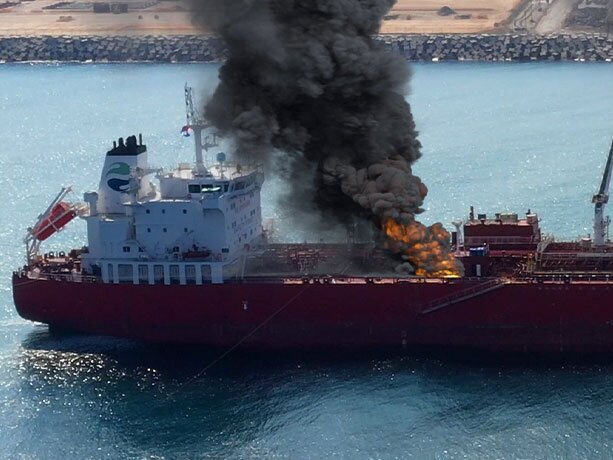With ship sizes continuing to grow, marine casualty events are increasingly resulting in complex, high cost claims. This makes the role of Special Casualty Representatives (SCRs) more important than ever before.
But, what do special casualty representatives do?
In short, it’s the job of SCRs to attend casualties (where the SCOPIC clause has been invoked) and monitor the subsequent salvage operations.
The SCOPIC clause (which stands for Special Compensation P&I Clause) is an optional supplement to Lloyd’s Standard Form of Salvage Agreement (LOF), and was introduced in 1999 as a means of remunerating salvors when there is insufficient value in salved property to ensure a conventional salvage award.
Lloyd’s Salvage Arbitration Branch, which acts as the administrator of the Lloyd’s Standard Form of Salvage Agreement (LOF), describes the SCOPIC clause as follows:
‘Article 14 of the 1989 Salvage Convention (‘Article 14’) provided that salvors (‘Contractors’) could receive Special Compensation (i.e. their expenses and a fair rate for tugs and equipment used in salvage operations) in certain circumstances where the salved fund was insufficient to allow them to recover adequate remuneration under Article 13 of the Salvage Convention 1989 (‘Article 13’).
The SCOPIC clause endorsed this concept but introduced a tariff to calculate the Contractor’s Special Compensation together with an uplift fixed at 25%. Traditional Article 13 Awards will be discounted by 25% of the amount by which any Article 13 Award exceeds the SCOPIC remuneration. Special Casualty Representatives (SCR) and Representatives for hull and cargo were introduced and marine property underwriters’ access to information about the services was improved’.
Representing all interested parties in a marine casualty and operating to independent, industry-standard methods, the SCR will provide a ‘final salvage report’ based on his or her observations of the salvage operation.
Note - the SCR is typically appointed by the shipowner (or their P&I club), however, they must act on behalf of all parties involved in a case.
This report will then form the basis for the settlement of any claim for SCOPIC remuneration (under the Special Compensation P&I Clause) that the salvor may have with the shipowner.
Given the sums that can now be involved in maritime casualties, it’s essential that the appointed SCR possesses both appropriate experience and expertise regarding casualty events. As such, many SCRs are Master Mariners or Naval Architects.
How to engage a Special Casualty Representative (SCR)
Special Casualty Representatives are selected by Lloyd’s of London and sit on the SCR Panel.
In the majority of maritime casualties, the SCR will be selected from the Lloyds panel and appointed by the insurer/P&I club that represents the vessel owner.
The easiest way to commission an SCR is to approach them directly.
Here at Brookes Bell, we employ six Special Casualty Representatives, all of whom are qualified, time-served Master Mariners or Naval Architects who are located across the globe and able to attend casualties at short notice:
- Graeme Bowles (Master Mariner) - UK.
- Nick Haslam (Master Mariner) - UK.
- David Ireland (Master Mariner) - USA.
- William Leschaeve (Naval Architect) - USA.
- Adrian Scales (Master Mariner) - UK.
- Ivan Todorov (Master Mariner) - UK.
The responsibilities of a Special Casualty Representative
When a salvage operation is being carried out, day-to-day salvage operations will be managed and overseen by the Salvage Master.
However, the Special Casualty Representative will, on a day-to-day basis, work closely alongside the Salvage Master and Salvage Team checking plans and monitoring the accuracy of both daily progress reports and the daily running cost sheet.
Ultimately, the SCR aims to be fully conversant with the salvage operations (and conditions) and be available to assist the Salvage Master where necessary. Furthermore, the SCR must be onboard the vessel during any major salvage activity in order to monitor and confirm the actions being progressed. Put another way, they are the ‘eyes and ears’ of the interested parties.
The SCR is responsible for reviewing and circulating the Salvage Master’s daily salvage reports to interested parties.
Should the SCR disagree with the way in which the salvage operation is being conducted, and/or disagrees with the Salvage Master’s daily salvage report, he has a responsibility to inform the Salvage Master in writing as soon as possible and publish a dissenting report to all parties.
Brookes Bell: salvage the situation with our SCRs
Brookes Bell has one of the leading teams of SCRs globally, consisting of time-served, expert Master Mariners.
Their experience spans casualty events of all kinds, covering myriad vessel types, scenarios and locations. Furthermore, this experience of monitoring salvage operations also enables the team to develop and critique Invitation to Tender (ITT) processes and thereafter undertake project management type roles for post salvage operations and wreck removals.
Our team have acted as salvage advisers to the UK SOSREP(s), and are listed in various governmental response plans where a guidance on salvage operations are required.
Speak to a Brookes Bell Special Casualty Representative today.

